![]()
Franklin County Military
Records
Franklin County G.A.R. Posts
and Soldier's Memorial Hall
~data compiled & transcribed by S. Ferrall for Franklin County IAGenWeb
Quick Links on this page:
Soldier's Memorial * J.W.
McKenzie Post, No. 81 * Mulligan Post, No.
102
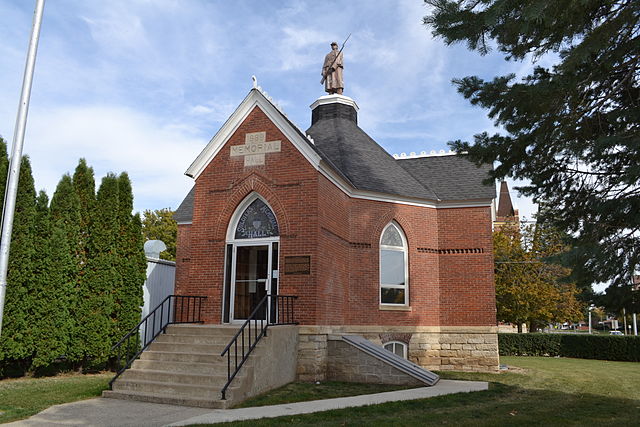
Soldier's Memorial Hall, Hampton
~photo by Ann Sullivan-Larson
The Franklin County G. A. R. Soldiers’ Memorial Hall is an historic building located at 3 Federal Street, North, in Hampton. The octagonal-style building was designed and built in 1890 by Edward Carl Keifer and was the meeting place of the J.W. McKenzie Post No. 81, which was one of 519 GAR posts in Iowa. On December 13, 1991, it was added to the National Register of Historic Places. A plaque on the front of the building reads:
|
~*~
Civil War Memorial
By 1860, Hampton was a bustling town of 200 population with two general stores, a printing office and a flour mill ... but then came the Civil War and the North Iowa community's growth was retarded for the duration.
|
Some years later the county
taxpayers voted to build Soldiers Memorial Hall for the
use of the Civil War veterans. The Hampton city council
donated a lot and the building was dedicated in August
1890. A marble tablet bearing the names of all the
Franklin County men who died in the war was placed on one
wall of the building. Later another tablet bearing the names of the veterans who had died since the war was placed in the building. That was in the spring of 1895. At that time there were 100 members in the G.A.R. Post. The last Franklin County survivor of the Civil War, Levi Conner, was to die in September of 1937, at the age of 91. With McKinley's administration came the Spanish-American War. More Franklin County enlistees died of typhoid in the Georgia training camp than on the battle-fields of Cuba and in the Philippines. ~excerpted from an article about Hampton, written by Bill Webb, staff writer, Mason City Globe-Gazette, June 29, 1956 - the photo accompanied the article |
~*~
Historic
Hampton Hall Honors 'Boys in Blue' Hampton - The "boys in blue" came marching
home in 1865 from the blodiest war the U.S. had known up
to that time - the Civil War ... |
~*~
| J.W. McKenzie Post, No. 81,
Hampton, Iowa, is in a very flourishing condition. It is
named in honor of J.W. McKenzie, a private in the signal
corps, who stood on the ramparts at Allatoona and waved
the answer from General Corse to General Sherman, from
which comes "Hold the Fort." McKenzie removed
from Ohio to Hampton about 1868 and was a practising
lawyer there. He was elected district judge in 1878, and
died in 1880, sincerely regretted. ~The National Tribune, Washington, D.C., August 9, 1883 ~*~ |
A soldier's memorial hall is
to be erected at Hampton. ~Sioux County Herald, May 23, 1889 ~*~ The soldiers' memorial hall at Hampton is fast nearing
completion. ~*~ The new G.A.R. hall at Hampton will be dedicated this
evening. |
Midland War Sketches
by Captain L.B. Raymond
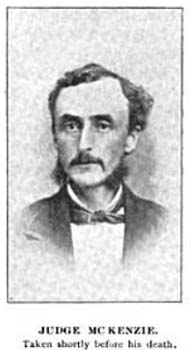
Judge James Wheeler McKenzie
The gallant defense of Allatoona, Ga., October 5, 1864, was one of the most thrilling incidents of our Civil War, and brought into national prominence General John M. Corse, before the war a resident of Burlington, Iowa. Another man who acted a humbler but not less heroic part on that day was destined in the future to also become a citizen of Iowa. I refer to James Wheeler McKenzie, who stood upon the parapet at Allatoona and waved the message from Corse to Sherman in answer to the one which has passed into history, story and song, as "Hold the fort, for I am coming!"
McKenzie was a native of Wyandotte county, Ohio, and was born July 2, 1843. His early life was spent on a farm, with such schooling as the district schools could afford. He early manifested a taste for reading and intellectual pursuits, and the outbreak of the war found him well educated and well informed for his age.
His first enlistment was in a regiment known as the "Squirrel Hunters," which was called into service to protect the southern border of Ohio ; but this service was of short duration, and in March, 1863, he enlisted in the Signal Corps as a private. At this time he was, and had been for about two years, a student at the Ohio Wesleyan University at Delaware, in that state. He was assigned to duty in the Department of the Tennessee, and most of the time until the close of the war he was on duty at the corps headquarters, commanded by Logan, McPherson and Howard. He was an eye-witness of the death of McPherson, in July, 1864, and narrowly escaped capture at that time.
While at Allatoona, October 5, 1864, when that place was attacked by the rebels under General French, he was on duty with a detachment of signal men and acting as sergeant, but in reality only a private. Here the occurrence took place which history has made one of the notable events of the war.
Sherman at Kenesaw, eighteen miles away, and Corse, in command at Allatoona, were signaling to each other over the heads of the enemy, and whoever of the squad of signal men that sent or received messages had to stand upon the parapet of the fort in full range of the enemy's guns. Called upon to detail a man for the perilous duty, McKenzie jumped upon the parapet and waved the message himself. For his conspicuous bravery on this occasion he was mentioned in General Orders No. 47 from the Bureau of the Signal Corps, November 3, 1864, as follows:"For coolness, bravery and good conduct under fire during an attack of the enemy on Allatoona, Georgia, October 5, 1864."
In the summer of 1865, McKenzie was mustered out of service. After a term spent in Oberlin College, he commenced the study of law, completing his course at the law department of the Michigan State University, and graduating therefrom in the spring of 1868. A year previous to this date his father's family had removed to Iowa, settling in Franklin county. This brought him to Hampton immediately after his graduation, where after considerable hesitation he decided to locate. He rose so rapidly in the ranks of his profession that, when in 1878 he was nominated and elected district judge for the Eleventh district, he stood confessedly at the head of the bar in Franklin county. But the confinement to the duties of the bench (there was but one judge in the entire district then ) undermined a constitution never strong and his health failed, and January 15, 1882, he died at the early age of thirty-nine years.
Both houses of the Iowa legislature, in session at that time, passed appropriate resolutions of regret at his death and adopted the same by a rising vote, and the notice of his death, with appropriate references and comments upon the heroic act which had made him famous, was widely published.
Judge McKenzie was personally one of the most modest and retiring of men. I do not think there are over three or four persons now living to whom he detailed all the particulars of the story with which his name will always be associated. I had the good fortune to be one of the few. He occupied an office with me in the court-house at Hampton when he first came to the state; and, as I already had heard the story from others, I naturally took an early opportunity to ask him about it; and I presume that I was the first man in Iowa, outside his own family, who ever heard the story from his own lips.
He was often solicited to write the story for publication, but would never do so. The Des Moines Register, at the time of his death, in a lengthy and feeling article said: "Of the thousands who have known him since the war, as lawyer, as politician and judge, comparatively few knew his record of unusual heroism in the army. He never mentioned it, and rarely alluded to his army service. He was twice solicited by the Register to write up his account of the wonderful incident, of which he was the hero, but he could not be induced to do it. Nor would he have given to others the items for them to do it. It is hoped he has left in some form, in personal diary, or otherwise, his account of the famous event. The world would know the story of such heroism given in the modest words of the hero himself. But it is doubtful if he has left any record of it."
As I recall his account, it was brief and entirely divested of the sensational features with which story and song have since invested it. His recollection, then, of the exact words of the memorable dispatch was at fault, but he was sure that General Sherman's message was simply, "Hold on till I get there," and that General Corse's reply was to the effect that, although wounded, he could whip the enemy yet.
McKenzie said that the reason why he waved the message himself was that when he came to detail a man for the hazardous service he looked the squad over and his eye fell first upon his younger brother (the late T. C. McKenzie, who died at Hampton in 1885), and he said to himself, "If I detail Tom and he is killed, I will never forgive myself as long as I live, and if I send any one of the other boys, they will accuse me of partiality towards Tom." So he took the signal flag and stepped upon the parapet, although above the breastworks was a perfect hail of bullets from the fire of the enemy.
One example of his reticence and modesty may be mentioned here. In July, 1878, he was a candidate for district judge before the republican convention at Fort Dodge. There was a spirited contest and there were several candidates, and the gentleman who was to place him in nomination had prepaced what he deemed to be a fitting presentation of a candidate with so gallant an army record. In some way it came to the ears of McKenzie and he absolutely forbade its use, and so, in the call of counties, while laudatory speeches were made in behalf of other candidates, when Franklin county was called, the chairman of its delegation simply said, "Franklin county nominates J. W. McKenzie and casts for him her eleven votes." But, as has been stated, he was nominated and elected by a majority of about 2,300, running nearly 500 ahead of his ticket. It was the general verdict of the bar, and of those who knew him best during his short career upon the bench, that had he lived he would have achieved eminence and distinction as a jurist. But it was not to be.
Judge McKenzie's grave is at Hampton, and his memory is honored there by his comrades of J. W. McKenzie Post No. 81, Grand Army of the Republic. His widow with her four children, a son and three daughters, resides at Ann Arbor, Michigan.
~The Midland Monthly Magazine, Vol II, No. 5, November, 1894; "Midland War Sketches", pg 369-371
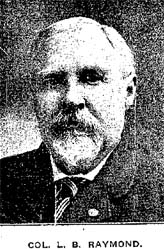
Colonel L.B. Raymond
Col. L.B. Raymond, editor of the Hampton Recorder, is a native of Rock county, Wisconsin, and is 65 years of age. He enlisted in the Sixth Wisconsin infantry, his regiment being one that constituted the famous "Iron Brigade".
Col. Raymond has resided in Hampton since 1865, and has not only acquitted himself creditably in the various public positions that he has held, but has been one of the most public spirited citizens of the community. During many years he was prominent in educational affairs, and has been the leading spirit in our public library since its establishment, and it was largely through his efforts that the donation was secured for the public library building now in process of erection.
In Grand Army matters he has always been prominent and active. He assisted in organizing the first post in Hampton in 1867, and upon the organization of the order, was one of the charter members of J.W. McKenzie post here, and was one of its earlier commanders.
He is the first man in Hampton to whom any old soldier, or soldier's widow or orphans go, if in trouble or distress, and he never tires of looking after their interests. He has been honored by the department of Iowa, having been a delegate to the national conventions at San Francisco and Chicago, and having served on the department council of administration, and also on the national council of administration, being a member for three years of the executive committee of that body.
It was he, who in the department encampment, made the first motion looking towards the care at the Soldiers' Home, of the wives, widows and mothers of soldiers, and it was largely through his work, as chairman of the committee appointed for that purpose, that the first legislative appropriation was secured to accomplish that end, and while on the board of trustees of the Home at Marshalltown, shared with the other trustees in the duty of erecting suitable buildings for the accommodation and care of the women admitted under the act.
It is a knowledge of these matters here at his home, that has encouraged J.W. McKenzie post, by a unanimous vote, to present his name to the comrades of Iowa for the highest office within their gift, and for these and other equally forcible reasons, his candidacy arouses universal interest here in the community where his home has been for over a third of a centruy, and the editor of the Chronicle, although a competitor of his in business for nearly six years, takes pleasure in voicing what it understands to be the universal sentiment of the community.
~The Cedar Rapids Evening Gazette, Tuesday, May 19, 1903
~Note: This biography was in the newspaper along with those of several other soldiers comprising a field of candidates who were hoping to succeed the outgoing commander of the Iowa department of the G.A.R.
Hampton, Aug 18 - E.J. Stonebraker, Sr., and George Autry, Civil war veterans, were guests of honor at a birthday dinner given Saturday at the G.A.R. Memorial hall by the W.R.C. on August 17, 1930, Mr. Stonebraker celebrated his eighty-third birthday, while Mr. Autry's eighty-fifth birthday falls on August 18. Both are active members in J.W. McKenzie Post, G.A.R. of Hampton. Mr. Stonebraker has the honor of being a past state commander of the G.A.R.
~Mason City Globe Gazette, August 18, 1930
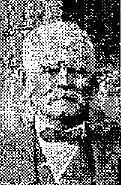 E.J. Stonebraker SR |
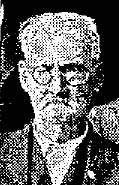 George Autry |
~*~
Hampton, Ia
- J.W. McKenzie post, Grand Army of the Republic, founded
June 26, 1882 with an enrollment of 15 charter members of
whom two are living, last week celebrated the fiftieth
anniversary of its founding. At a reception in Memorial
hall, Frank Quade, Dubuque, state patriotic instructor
for the G.A.R. gave a talk on Southern Battlefields. Mrs.
O.G. Reeve, president of the local Women's Relief Corps,
presided at the meeding. Mrs. J.W. Ferris gave the
address of welcome and J.C. Ferris responded. Miss Irma
Campbell and Harry Stonebraker contributed several
musical numbers. The two living members who helped
organize the post are E.J. Stonebraker, Sr., Hampton and
John Ferris, Los Angeles, Cal. Rev. Thomas Carson gae the
address, and Miss Emily Reeve gave a history of the
W.R.C. Mrs. William Savidge and Frank Kratochir also
contributed to the program. |
Hampton, Feb 12 - Five veterans of the Civil war "who knew Lincoln" and the only remaining members of the J.W. McKenzie Post, G.A.R., observed Lincoln's birthday here Tuesday.
~Mason City Globe Gazette, February 12, 1935 |
~*~*~
Mulligan Post, No. 102, Grand Army of the Republic, was organized Oct. 20, 1882, the charter members being mustered in by Capt. R. S. Benson and other members of McKenzie Post at Hampton. The name given the organization was that of Col. James R. Mulligan, of the Twenty-third Illinois Regiment, who was shot down at the head of his command at the battle before Winchester, which took place on July 24, 1864. The first officials were: J. S. Barney, commander; C. D. Johns, senior vice commander; R. J. Churchhouse, junior vice commander; G. R. Miner, adjutant; John Richer, chaplain; William Combellick, quartermaster; Joseph Perrin, officer of the day; Samuel Esslinger, officer of the guard; I. I. Thompson, sergeant major; B. R. Tilton, quartermaster.
The charter members were B. R. Tilton, H. R. Floyd, James D. Abrams, C. D. Johns, Joseph Perrin, I. I. Thompson, D. F. Ross, Ed Esslinger, Emanuel Esslinger, Samuel Esslinger, Hiram Chase, C. Webster, William Parks, Asa Bailey, R. J. Churchhouse, Jonathan Bender, G. R. Miner, William Combellick, F. W. Kimball, R. Cook, J. S. Barney, R. Wilde.
The membership of Mulligan Post had reached forty at one time but fourteen of the original members have answered the last roll call, five have moved away and only two, Samuel Esslinger and C. Webster, remain. The present membership has dwindled down to eight.
In the great fire of 1894 the headquarters of the post were burned and the records destroyed. Shortly thereafter, by various means, the post secured sufficient funds to purchase a lot, upon which a tastefully built frame structure was erected. This is the Grand Army Memorial Hall, where the remnant of the old guard meets. It is also the meeting place of the Masonic and Odd Fellow lodges.
Mulligan Relief Corps. No. 303, was organized February 20, 1895, with twelve charter members. This organization meets in G. A. R. hall.
~from the History of Franklin County, Iowa; Vol I, 1914; edited by I.L. Stuart; Chapter 22, pg 359.
~*~
At Home in Tents
Roster of Veterans Who Are Quartered at Camp Mason
All Enjoying Their OutingThere was no place, perhaps, where the old soldier was so realistically carried back to the stirring times of campaign life as at Camp Mason, where there were about 5,000 veterans housed under canvas, and where the tap of drum and bugle call were familiar sounds to his ear. Making it stil more realistic and enjoyable, nearly every post had its own mess and sutler, while each department had either its band or fife and drum corps, which at stated hours each day discoursed those familiar battle songs which are so dear to the heart of every man who responded when his country called. The Globe herewith presents a roster of the camp as complete as it was possible to obtain it:
Mulligan Post No. 102, Sheffield, Io.
-Commander, D.O. Waters
J. Barney
D.D. Smith
L.S. Bullard
P. Hall
E. Esslinger
F. Corell
A. Ufford
I. Chase
J. Beeler
A. Bailey
G. Van Piper
I. SladeA. Smith
A. Thorp
J. Ufford
M. Esslinger
Pulfrey
M. Dems
H. Kleeman
Belick
A. Hawver
E. Lockwood
Mrs. J. Vernon
Mrs. A. Thorp~Saint Paul Globe, Friday, September 4, 1896
~Mulligan Post was the only Post listed as attending from Iowa. Others were from Minnesota, Wisconsin & Illinois.
~*~*~
This page was
created November 4, 2012 & updated August 1, 2014
©2014 by IAGenWeb & the various submitters.